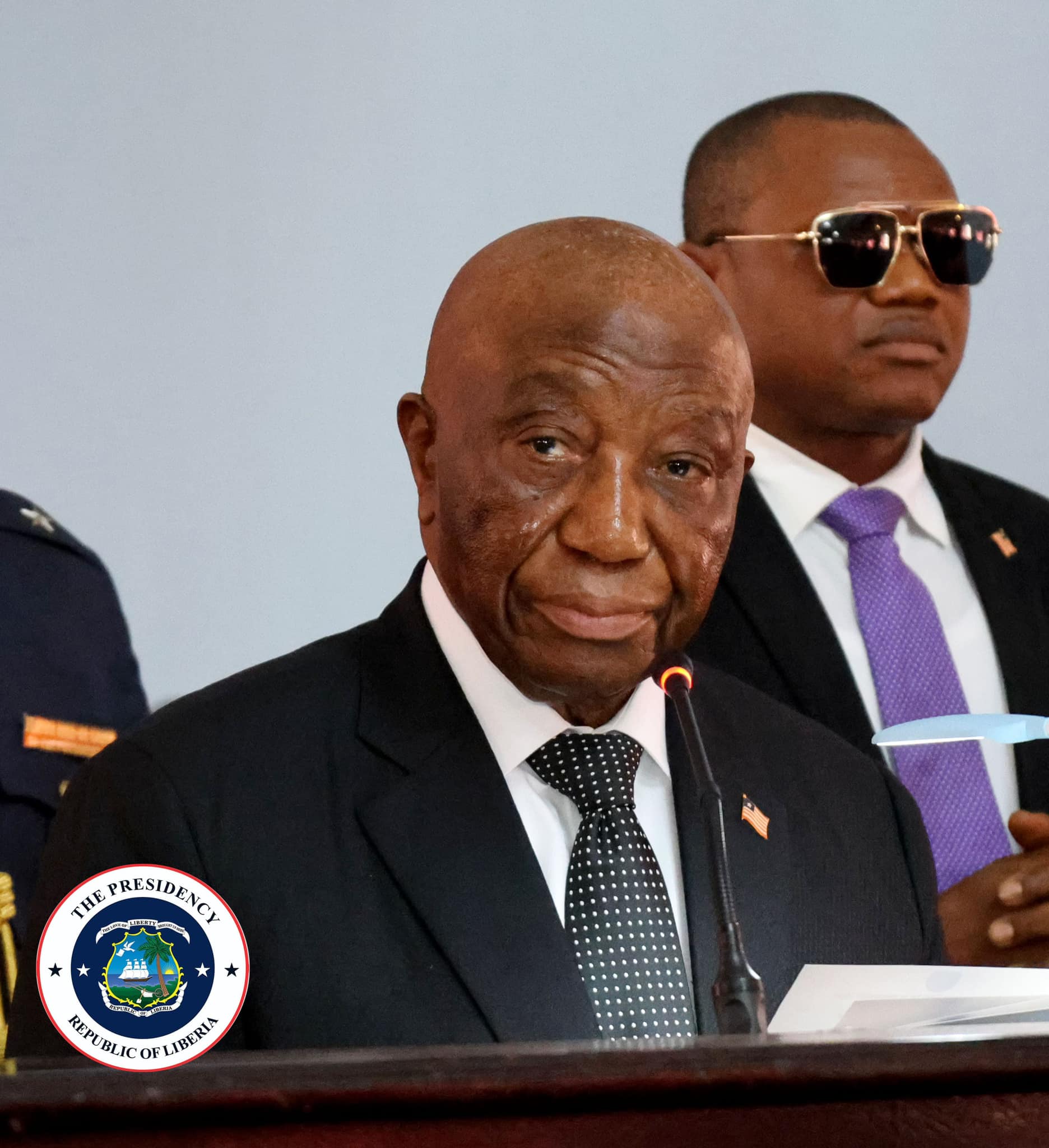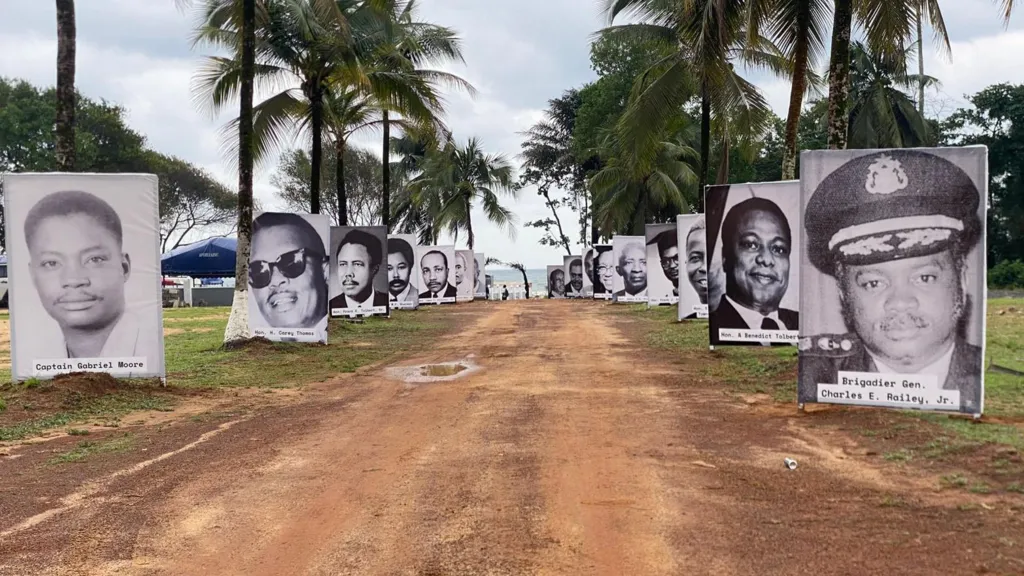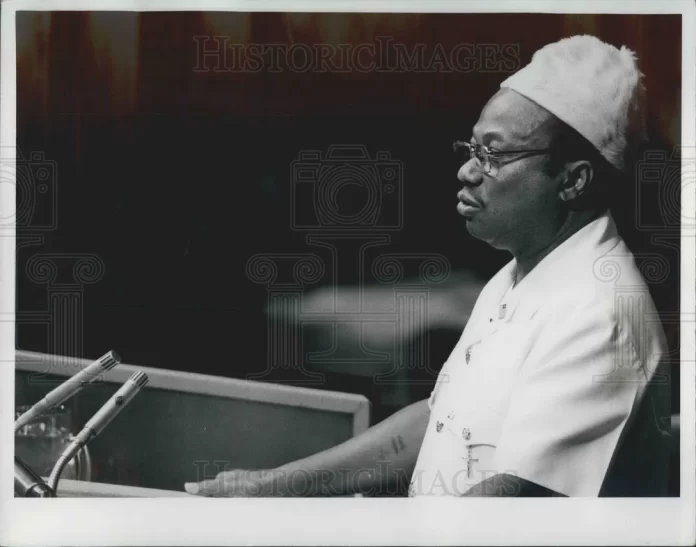Liberia’s former President William R. Tolbert has undergone a symbolic reburial, 45 years after he was murdered during a coup, with his body believed to have been dumped in a mass grave.
Ten days after the president’s killing, 13 members of his cabinet were tried in a kangaroo court, stripped of their positions, tied to stakes, and executed by firing squad at the Barclay Training Center in Monrovia. Although none of the 14 corpses has been found, they were all honored with a state funeral attended by President Joseph Boakai and other dignitaries.
The ceremony was seen as an act of reconciliation, part of the nation’s effort to come to terms with its violent past. The coup on April 12, 1980, led by 28-year-old Sergeant Samuel Kanyon Doe, ended over a century of political dominance by the minority Americo-Liberians, who are descendants of freed black slaves that emigrated from the U.S. in the 1800s.
Tolbert presidency
Tolbert’s nine-year presidency was marked by widespread dissatisfaction due to ethnic inequalities. His overthrow initiated a period of instability in Liberia that culminated in two devastating civil wars, which finally ended in 2003. Doe himself met a violent death at the hands of rebels in 1990, and his recent reburial in his hometown of Zwedru, Grand Gedeh was also ordered by the president.
“This is not just a burial; it is a moment of national reflection, a time to reconcile with our history, to heal from our wounds, and to remember with respect and purpose,” Boakai stated during Doe’s funeral.

For the families of those executed in 1980, the ceremony is both an act of remembrance and a means of bringing respect to those who lost their lives. “It has been 45 years, and the pain is still fresh,” said prominent lawyer Yvette Chesson-Gibson, the daughter of executed Justice Minister Joseph Chesson, in an interview with the BBC.
She emphasized that Tuesday’s reburials marked the beginning of a long-term process. “This is not just a ceremony; it is the start of closure. Reconciliation is not an event,” she remarked.
“There are many facets to healing; for us, primarily, this is just one of the many ways we continue to pay homage to deserving Liberian fallen heroes,” said Bindu Dennis, the daughter of Tolbert’s Foreign Minister, Charles Cecil Dennis. “Our fathers were simply murdered in one of the world’s most despicable and inhumane public acts of brutality, violence, and cruelty born from an ugly spirit of greed for political power. As long as we understand that closure doesn’t mean forgetting, then we are on the same page.”
No grave for 13 men killed
Until now, the 14 individuals executed in 1980 have been remembered by a tombstone bearing their names, where former presidents have paid their respects each year. However, when this was excavated earlier this year, no human remains were found, leaving uncertainty about their fate.

Liberia’s Education Minister Jarso Maley Jallah, who is in charge of the reburial program, stated, “There are some things that have happened in our country that we’re not proud of, but we are Liberians, and we must come together to advance our nation.” Each family of the victims is being presented with a Liberian flag as a mark of their public service, and a 21-gun salute was also be performed.
In 2006, a Truth and Reconciliation Commission (TRC) was established by former Liberian President Ellen Johnson Sirleaf to gather testimonies about atrocities committed from 1979 to 2003 during the conflicts. In 2009, the TRC identified individuals to be prosecuted for war crimes, but no action was taken, and no one has been tried in Liberia, although some perpetrators have been convicted in other countries. Last year, Boakai signed an executive order aimed at establishing a special court.g up a special court.






















